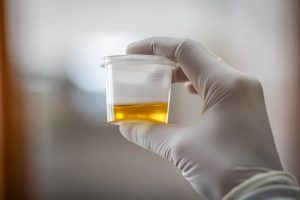
Many bodily functions deteriorate or weaken as we age. You may not need glasses, you may have to crank the volume up a bit louder, or your joints may hurt when you wake up. But what does this mean for how old you really are?
Anti-aging researchers suggest that aging is a disease, and with any disease, it can treated. They have created a simple test that doctors may be able to use to help measure the effectiveness of anti-aging therapies.
Chinese-based researchers designed a simple urine test that can reveal how much aging our bodies have actually done by measuring cellular damage. The test may be useful in predicting age-related disease and mortality.
Cellular damage depends on genetics, lifestyle, and other contributing factors. The main cause of aging is oxidative stress, where this oxidative stress damages cells, causing the breakdown of bodily functions.
Researcher Jian-Ping Cai explained, “As we age we suffer increasing oxidative damage, and so the levels of oxidative markers increase in our body.”
The researchers found that levels of 8-oxoGs—the result of RNA oxidization—increases with age and is detectable through a urine test.
For the study, the researchers used ultra high-performance liquid chromatography to analyze urine samples from 1,228 Chinese participants.
Cai summarized, “We found an age-dependent increase in urinary 8-oxoGsn in participants 21 years old and older […] Therefore, urinary 8-oxoGsn is promising as a new marker of aging. Urinary 8-oxoGsn may reflect the real condition of our bodies better than our chronological age, and may help us to predict the risk of age-related diseases.”
Although 8-oxoGsn did not differ among men and women, postmenopausal women had higher levels which could be attributed to a drop in estrogen.
Cai suggests the urine analysis test will be beneficial to determine how our bodies are coping with aging.
Related: Why tiredness and weakness isn’t a normal part of aging